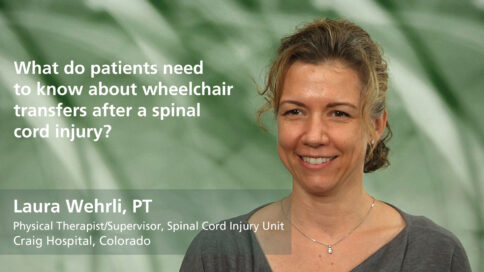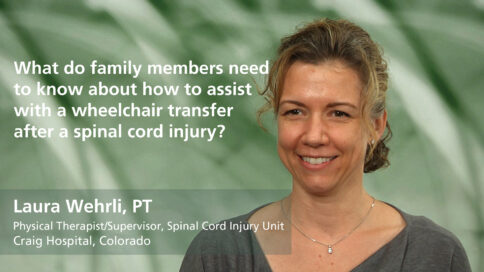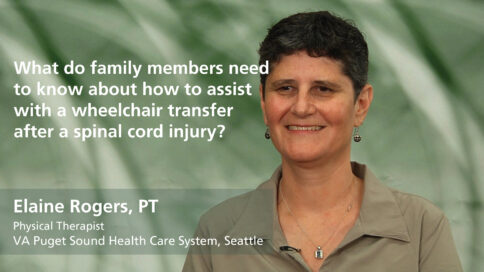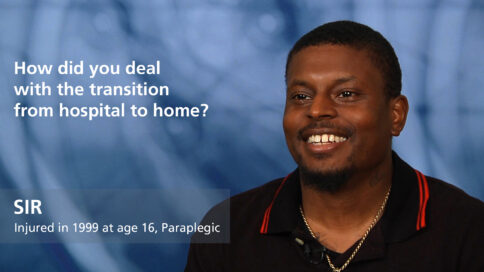What do patients need to know about wheelchair transfers after a spinal cord injury? - Isa McClure, MAPT
|
|
What do patients need to know about wheelchair transfers after a spinal cord injury? |
|
Isa McClure, MAPTPhysical Therapist, Kessler Institute for Rehabilitation, New Jersey |
||
| Read Bio | More Videos by Isa McClure | |
|
Share |
||
Transcript
Transferring in and out of a wheelchair is a definite skill that people need to learn. Sometimes they use a board to sort of bridge the gap between the chair and whatever surface they’re going to be on—a mat, a bed, a car. Sometimes they’re able to perform those lateral transfers where they’re just moving and lifting their bottom with their arms. The most important thing to realize with those transfers is the ability of scooting your bottom forward, leaning forward and then lifting your bottom high enough so it doesn’t hit the wheel of the wheelchair, causing skin breakdown. One of the ways I like to teach transfers is with what I call the “PEN Principle.” My first mentor in physical therapy called it the “PEN Principle” so I’m stealing it from her—that little saying where you have to think of your body as a pen: your head is the top and your bottom is the bottom of the pen, where one goes, the other goes in the opposite direction. So we teach them to use their head, their shoulders and their chest to help get that movement going so it’s safe and effective. We have to also be careful because we want to limit the transfers—we want them effective, we want them safe, but we don’t want people transferring 500-times a day because it’s not good for the shoulders.
Show Less|
|
||
add
What do patients need to know about wheelchair transfers after a spinal cord injury? |
||
Isa McClure, MAPTPhysical Therapist, Kessler Institute for Rehabilitation, New Jersey |
More Videos by Isa McClure | |
| Transcriptadd | share | |
Transferring in and out of a wheelchair is a definite skill that people need to learn. Sometimes they use a board to sort of bridge the gap between the chair and whatever surface they’re going to be on—a mat, a bed, a car. Sometimes they’re able to perform those lateral transfers where they’re just moving and lifting their bottom with their arms. The most important thing to realize with those transfers is the ability of scooting your bottom forward, leaning forward and then lifting your bottom high enough so it doesn’t hit the wheel of the wheelchair, causing skin breakdown. One of the ways I like to teach transfers is with what I call the “PEN Principle.” My first mentor in physical therapy called it the “PEN Principle” so I’m stealing it from her—that little saying where you have to think of your body as a pen: your head is the top and your bottom is the bottom of the pen, where one goes, the other goes in the opposite direction. So we teach them to use their head, their shoulders and their chest to help get that movement going so it’s safe and effective. We have to also be careful because we want to limit the transfers—we want them effective, we want them safe, but we don’t want people transferring 500-times a day because it’s not good for the shoulders.
























































